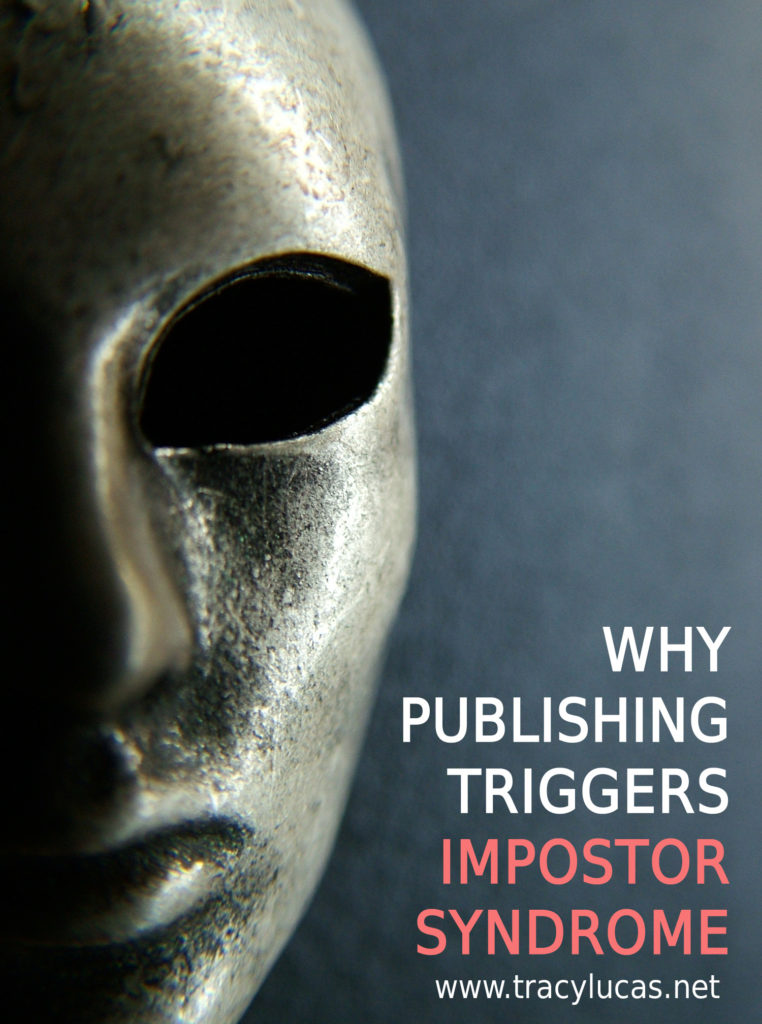Why publishing triggers impostor syndrome

Selling your own writing is hard.
Know why?
I’ve decided it’s the feedback loop.
Insecurity and being a writer kind of go together.
Nothing’s absolute, and there are always exceptions – but the majority of writers I know (myself included) seem to struggle with wearing “good enough” more than any other label.
Why? I think it’s because that when you throw your writing into the world, the feedback loop is more skewed than for other professions and products.
If you like a handbag at the store, you know you like it. You are trading X-number of dollars for the item you just held, opened, decided upon. You tried on the shoes before you bought them. You know what make and model car you like before you go to the lot, and you test drive it. If you don’t like what the painters did to your living room, you can have them come back and add another coat.
But if you are buying my book, what you are doing is paying for a $14.99 paperback promise that you WILL like it. $24.99 hardcover. And those dollars are generally nonrefundable.
You have given me your money either because of what I’ve said in person or printed on the back cover. You bought the potential, not the experience.
You check out at the bookstore and have not the slightest clue whether you’ll actually like what I’ve talked you into buying. It’s purely hypothetical.
And then you leave.
You go home, and it’s over.
You don’t email me a week later to let me know whether it met your expectations.
That happens at your house, so privately that it has nothing to do with me. The author is never part of that transaction. I don’t know whether it moved you or made you laugh, made you angry that you lost good money, or whether you read five pages, shrugged, and lined your parakeet’s cage with it.
The $15 or $25 stays mine either way. I have no way to know whether I deserved it.
For someone with impostor syndrome, this only furthers it.
Maybe I convinced you to pay almost thirty bucks because you liked how I laughed at your jokes or that I’d heard of your one-horse hometown in the Midwest. Maybe I sold twenty books at that signing. But that’s because I was working my ass off to charm everyone, not because even one of them read the whole book while I was standing there watching, then decreed, “Yes, you were right, the way you arranged the words in this thing is terrific.”
Writing is very much a fake-it-‘til-you-make-it sport. It has to be, by design. No one can judge your writing or provide accolades or criticism until AFTER you have sent the product into the ether. It’s not morally wrong; it’s the necessary order of events in our business.
Knowing how confident you have to be to sell each copy of the book in the first place, we authors – especially, perhaps, brand-new authors, who truly have no precedent for how they’ll be received, and no repeat customers yet – put on a brave face and do the marketing thing.
And most of us hate it.
My theory is that it’s because deep inside, we know we’re just selling you the *promise* of the book. Not an item you have weighed, measured, and found worthy before parting with your hard-earned cash.
We’re all secretly afraid you’re going to take it home and find us out. You’ll feel ripped off. We’re terrified to deceive you into thinking we’re “good enough.” We feel weirdly guilty for making every sale.
That makes it hard to celebrate. It definitely doesn’t add to feeling any worthiness.
No, it’s not your job as a reader to nurture our fragile little egos. And we’ll keep writing anyway, the ones of us who just can’t help it.
But yes, we could use the feedback.
Sometimes even more than your dollars.
.
(Image credit: Marie Jeanne Iliescu)







Leave a Reply